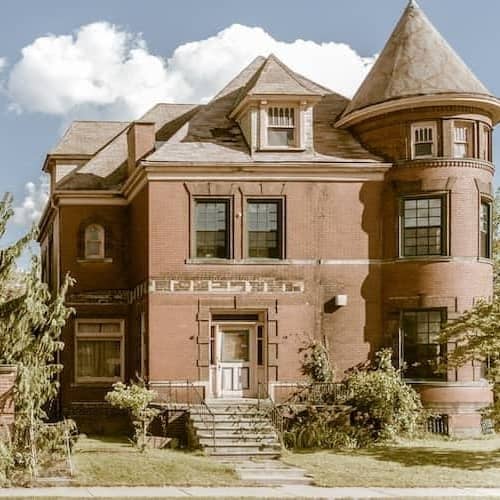Can you buy a foreclosed home with an FHA loan?
Contributed by Tom McLean
Nov 6, 2025
•6-minute read

Aspiring homeowners struggling to afford full market prices may look at foreclosed homes as an affordable option. If your credit score is on the lower side, you may be wondering: Can you purchase a foreclosed home with an FHA loan? The short answer is yes, as long as both you and the property meet FHA requirements.
How an FHA loan affects the buying process
Buying a foreclosed home can be more challenging, especially when you’re financing it with an FHA loan. While FHA loans offer lower down payments and flexible credit requirements, they also require the home to meet specific livability standards.
Foreclosures often are sold “as is” and may need significant repairs to meet FHA guidelines. The property must be safe, structurally sound, and sanitary. Damage to the roof, an outdated electrical system, a nonfunctioning furnace, or structural problems that make the home unsafe to live in can stall approval of an FHA loan until repairs are made.
If you’re planning to buy a fixer-upper with an FHA loan, you’ll need to focus your search on homes that meet the property requirements. Making a successful offer on a foreclosed home with an FHA loan will be more difficult if you’re competing with cash buyers who have no appraisal or inspection concerns.
What are the FHA loan requirements?
Qualifying for an FHA loan means meeting borrower and property requirements, as well as working with an approved lender.
Property requirements
When using an FHA loan to buy a foreclosure, the home must meet specific standards to qualify for financing. Under these requirements, the property must be safe, livable, and a good long-term investment for the borrower.
Specific requirements include:
- It must be your primary residence. FHA loans generally can’t be used for an investment property or vacation home. You must live in the home as your primary residence for at least one year.
- It must pass an FHA-approved appraisal. An FHA appraisal is required to determine the home’s property value and verify if it meets FHA property standards.
- It must meet minimum safety and habitability standards. The home must meet FHA minimum property standards, requiring the home to be structurally sound, free of health hazards, and have functional systems like heat, water, and electricity. Issues like major roof damage, nonworking plumbing, or exposed wiring could disqualify the home from FHA financing.
Borrower requirements
FHA loans have precise borrower requirements to help protect both the borrower and the lender. If you’re applying for an FHA loan to buy a foreclosed property, here’s what your lender will expect:
- Minimum credit score. FHA loans often are an option for buyers with a lower credit score. Rocket Mortgage® requires a 580 credit score to buy a home with an FHA loan and a down payment of 3.5%. Other lenders may allow a credit score of 500 with a 10% down payment.
- Debt-to-income ratio: Rocket Mortgage requires a DTI ratio of less than 45% with a credit score between 580 and 619.
- Down payment: FHA loan down payment requirements are 3.5% down if your credit score is 580 or higher, or 10% down if your score is between 500 and 579. Rocket Mortgage requires a 3.5% down payment and a credit score of at least 580.
- Mortgage insurance premiums: FHA loans require both an up-front and an annual mortgage insurance premium, or MIP, which protects the lender if you default. The up-front cost is 1.75% of the loan amount, and the annual premium ranges from 0.15% to 0.75%, depending on your down payment and loan term.
- Closing costs: You’ll also need funds for closing costs, which can include lender fees, title charges, and prepaid expenses like property taxes. FHA closing costs typically range from 3% to 6% of the home’s purchase price.
- Additional lender requirements: Some lenders may have additional requirements, such as cash reserves, especially for foreclosures. Reserves, which are liquid or near-liquid assets available to the borrower, often are measured in months of mortgage payments. FHA may require at least two months of reserves in some cases.
Pros and cons of buying a foreclosure with an FHA loan
Buying a foreclosed property with an FHA loan has advantages and drawbacks to consider.
|
Pros |
Cons |
|
Low down payment requirements |
As-is properties could lead to expensive repair costs |
|
Lower cash reserve requirements |
FHA livability standards |
|
Easier credit requirements |
Competition with buyers |
|
More affordable home prices |
Slower sales process |
Pros
- Lower down payment requirements: FHA loans require at least 3.5% down with a credit score of 580 or higher. This can make it easier for borrowers with lower credit scores to qualify for a loan and afford a home.
- Lower cash reserve requirements: FHA loans don’t always require large cash reserves after closing. This means you may have more flexibility to use your savings for moving expenses, repairs, or other needs.
- Easier credit requirements: FHA loans are often more forgiving of past credit issues. Some lenders allow borrowers to buy a house with bad credit with a credit score as low as 500. Rocket Mortgage requires a credit score of at least 580 for an FHA loan.
- More affordable home prices: Foreclosed homes often are priced below market value, which can help more people afford to buy. In some cases, your lender may accept specific FHA compensating factors that strengthen your application, even if one requirement falls short.
Cons
- As-is properties may require expensive repairs: Many foreclosures are sold in their current condition, meaning repairs and updates are your responsibility. In some cases, an FHA loan may not be enough to cover the cost of buying and repairing a home.
- FHA livability standards: FHA loans require that the home meet specific safety, security, and structural standards before closing. If the property falls short, repairs must be completed before the loan can be approved, which may delay or derail the purchase.
- Competition with other buyers: Well-priced foreclosures tend to attract investors and buyers who can move quickly, including those buying a house with cash. These offers are typically more appealing to the seller than those using an FHA loan because they often close faster and with fewer conditions.
- Slower sales process: FHA financing involves extra steps, such as the FHA appraisal and repairs, which can extend the timeline.
Where can you find foreclosures for sale?
You can find foreclosures for sale through general real estate listing websites or by checking foreclosure-focused platforms, such as:
- HUD Home Store: Listings owned by the U.S. Department of Housing and Urban Development, often with priority bidding periods for specific buyers.
- Fannie Mae HomePath: The HomePath program lists foreclosed homes owned by Fannie Mae and sometimes offers financing incentives for qualified buyers.
- Freddie Mac HomeSteps: These are properties owned by Freddie Mac and are often marketed with fewer restrictions to help speed up the sale.
It’s also a good idea to work with a real estate agent who understands foreclosures. An experienced agent can check the multiple listing service for additional opportunities, some of which may not appear on public sites. They can also guide you through the requirements of buying a foreclosed property with an FHA loan.
What happens if the foreclosed home doesn’t qualify?
If the foreclosure doesn’t meet FHA livability requirements, consider an FHA 203(k) loan, which rolls the purchase price and the cost of approved repairs or renovations into a single mortgage. This can be helpful if the property requires extensive repairs to ensure safety and functionality. While it helps open the door to homeownership, there are trade-offs. Renovations must meet program guidelines, and the process can take longer. Rocket Mortgage does not offer FHA 203(k) loans currently.
Other types of mortgages, such as conventional loans, may allow you to buy a home that doesn’t meet FHA standards, though they often have stricter credit and down payment requirements.
Another option is to buy a foreclosure with a VA loan. This government-backed option offers competitive terms for eligible military personnel and veterans.
The bottom line: An FHA loan can finance an eligible foreclosed home
Combining a home loan from the FHA and foreclosure listings can open the door to homeownership, especially if you’re looking for more flexible credit requirements. The key is finding a property that meets FHA standards. Take the time to explore listings, understand potential repair needs, and weigh the pros and cons before making an offer.
Ready to apply for a mortgage? Fill out an application today with Rocket Mortgage.

Josephine Nesbit
Josephine Nesbit is a full-time freelance writer specializing in real estate, mortgages, and personal finance. Her work has been featured in U.S. News & World Report, GoBankingRates, Homes.com, Fox Business, USA Today Homefront, and other publications where she helps readers navigate the housing market and manage personal finances.
Related resources

6-minute read
Can you buy a foreclosed property with a VA loan?
Veterans Affairs home loans have helped millions of veterans to become homeowners. But can you buy a foreclosure with a VA loan? Read on to find out.
Read more
7-minute read
The difference between forbearance and foreclosure
The words may sound the same, but there’s a difference between forbearance and foreclosure. Here’s what you need to know.
Read more
9-minute read
Investment property loans: What are they and what are your options?
Considering buying an investment property? Learn what an investment property is, the types of properties you can invest in and how to get financing through a lo...
Read more